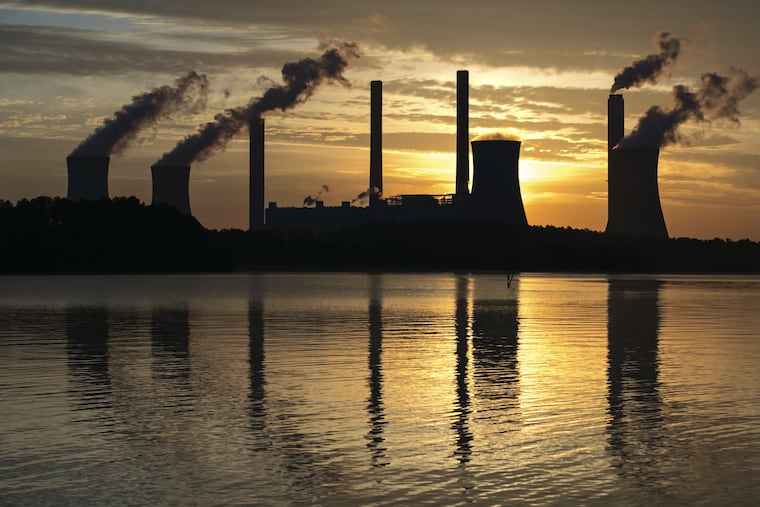$2 billion spent to influence Congress on climate change, Drexel study finds
The study by Robert J. Brulle showed that "expenditures by these sectors dwarf those of environmental organizations and renewable energy corporations."

Lobbyists spent more than $2 billion trying to influence Congress on climate change from 2000 to 2016, with fossil-fuel industry groups outspending environmental groups by 10-1, according to a new study by a Drexel University professor.
The peer-reviewed study by sociologist Robert J. Brulle, released last week in the journal Climatic Change, showed that "expenditures by these sectors dwarf those of environmental organizations and renewable energy corporations."
"You can sort of see the enormous mismatch of resources in the climate change fields," Brulle said Wednesday. "Environmental groups and the renewable energy [sector] are pretty much a footnote."
Brulle analyzed numbers from campaign-data website Open Secrets, run by the nonpartisan Center for Responsible Politics. He looked at spending by environmental groups and the renewable energy sector. And he looked at spending by electrical utilities, and the fossil fuel and transportation sectors.
He identified 64,162 individual lobbying reports filed by 2,780 unique organizations as related to the climate change issue lobbying between 2000 and 2016.
About $2 billion was spent influencing discussions on climate in that 16-year span, peaking in 2009 at $362 million as the Obama administration got underway. That year, Democratic congressmen introduced the Waxman-Markey Bill, a sort of cap-and-trade legislation with the goal of reducing carbon emissions. The bill squeaked by the House but never made it to a vote in the Senate.
The Republican Party took control of the House in 2010 and has held it since. Lobbying expenditures decreased, apparently as the threat of climate-change legislation also decreased.
Brulle said he undertook the study because there wasn't much literature on lobbying's influence on policy and power. He said he was surprised at the size of the spending gap.
"I knew there would be a significant disparity," Brulle said. "But when you look at the ratios, it's still 10-1. So I think the scale surprised me. It's not in the millions, it's in the billions."
He said that shows that "corporations and political players put a lot of interest in lobbying, more than political contributions."
Brulle said his goal wasn't to find villains. Rather, he said, his findings are more nuanced, showing that some fossil-fuel related groups lobbied in favor of climate-change legislation. For example, he said, the natural gas industry at times favored such legislation. Natural gas is not only a competitor to coal but is viewed as cleaner by some. Natural gas operations release much less carbon dioxide, a greenhouse gas, than coal.
Indeed, the bulk of spending concerning climate change-related legislation came from the electrical utilities sector, which would include coal-fired power generation companies. That sector alone spent $554 million during the 16-year span.
Environmental and renewable energy groups sent about $127 million during the same period.
"The reality is, you've got to think in terms of color, not black and white," Brulle said. "You find variations with utilities and oil/gas companies. Exxon Mobil and Shell are different in their approaches."
Brulle said he hopes other scholars will conduct studies. He said other factors influence the success or failure of legislation, such as timing, public opinion, and political campaigns.
"We need a lot more research if we're going to understand what's going on here," Brulle said.
In his study, Brulle noted: "Lobbying is conducted away from the public eye. There is no open debate or refutation of viewpoints offered by professional lobbyists meeting in private with government officials."